EatWild Team

Dylan Eyers

Dylan Eyers
EatWild Owner / Operator, Park Ranger, Hunting Instructor
For Dylan Eyers, hunting has always been about two things: creating a community around food and connecting with nature. It’s a philosophy he picked up from a long line of hunters, and it’s one that he’s proud to pass on to new generations. His maternal grandfather, Wally, was a Métis fur trapper and a life-long adventurer who hunted with dog teams and hand-made birch bark canoes. He shot moose each year and fed all the kids in the neighbourhood, even after he moved from a small island in Winnipeg Lake to Vancouver.
Wally eventually mentored Dylan's father, who never picked up a gun or cast out a fishing line without a gourmet meal in mind. “His favourite thing was cooking and feeding his family and friends and throwing great dinner parties,” says Dylan. “If he saw three moose standing there, a small one, a medium sized one and a big one, he would shoot the middle bull because it would be the most flavourful, but it wouldn’t be too tough,” he says. But unlike his father and his grandfathers before him, killing did not come easy to Dylan. To this day, he is the proud owner of 107 teddy bears and other stuffed animals spanning the entire animal kingdom. His collection now lives in storage (thankfully), but it might explain why Dylan was unable to actually shoot anything during his father’s annual hunting trips until he was 15 years old. “I showed some interest in hunting when I was 13 or 14 but I couldn’t imagine killing an animal at first, that was a big stretch,” he says. The turning point happened when he noticed the ceremony and camaraderie that exists between his father and his hunting buddies. “Every time someone comes back to camp, everyone stops what they’re doing and goes up to the guy to check out his deer and say congrats,” recalls Dylan. “I realized that I wanted to be that guy who comes back to camp, and I’ve been pretty much hooked on hunting ever since.”
Over the years, Dylan has unexpectedly morphed into an ambassador for the craft, and the idea for EatWild almost willed its way into existence. “I always had to defend myself,” he says. “Most hunters hunt for food, but there is a negative stereotype about the motivations of hunters that isn’t justified. For me it’s about mentorship, it’s about family, and it helps me support my community and feed all my friends.” Having benefitted from his many feasts of wild game, Dylan’s circle of friends, and friends of friends, started asking him for advice and guidance. Mentoring new hunters was taking up more and more of his time. “Eventually I realized that there were enough people talking about this that I could figure out what steps the urban foodie community could take to start hunting. I figured out what the barriers were, and decided to reduce them.”
So in 2011, EatWild was born, and the rest is history. “I’m hopeful that EatWild can give people a different perspective of hunting,” he says. With the guidance of Dylan and his EatWild team, all you’ll need to harvest your first beast is a sense of adventure and a whole lot of patience. “The most challenging thing is getting out in the wilderness and getting the skills and confidence you need to figure out how the animals live and how to harvest them,” says Dylan. Developing those skills can take years, but it’s always worth it in the end. “This year, we had a fantastic White Tail hunt. Four new hunters all shot their first bucks, two women and two guys. Mark put in five years before he had his first White Tail buck, so he was over the moon. We didn’t stop talking about that hunt for weeks afterwards. That was a great hunt.”
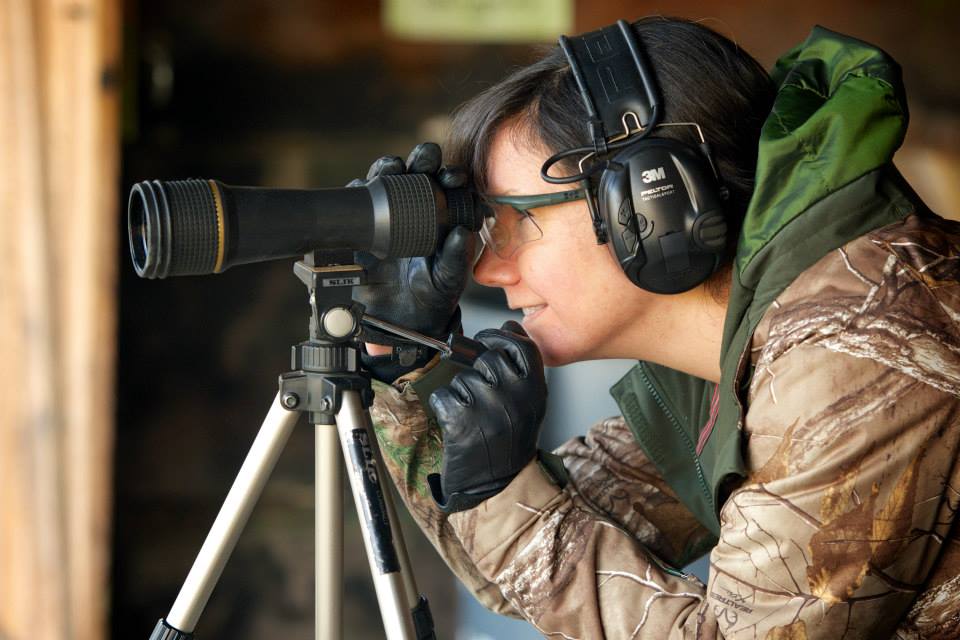
Martyne Lacoste
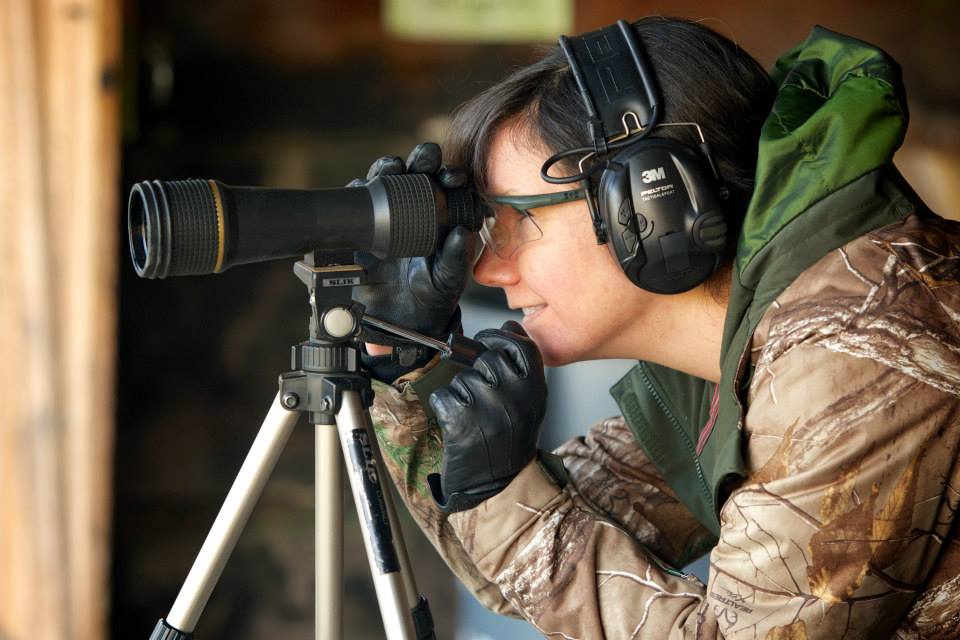
Martyne Lacoste
CORE and CFSC instructor and mentor, based in the BC Interior
Martyne has a gift for teaching people of all ages. She creates a welcoming experience, where everyone feels included to participate.
Food. It’s all about the food. I always ate healthy, but a few years ago, I started asking more questions and educating myself about where our food comes from and the impact it has on our bodies, minds and environment. What I found brought me to the path of becoming a hunter and Eat Wild has been instrumental in that journey. I now contribute as much as I can in other’s path to becoming ethical hunters and some of the ways I have involve teaching the Canadian Firearm Safety Course, the CORE, and participating in the instruction of the Shooting Workshops. As I learned these skills later in life, I am able to customize my teaching to the particular challenges of adults learning. I get it, because I've been there.
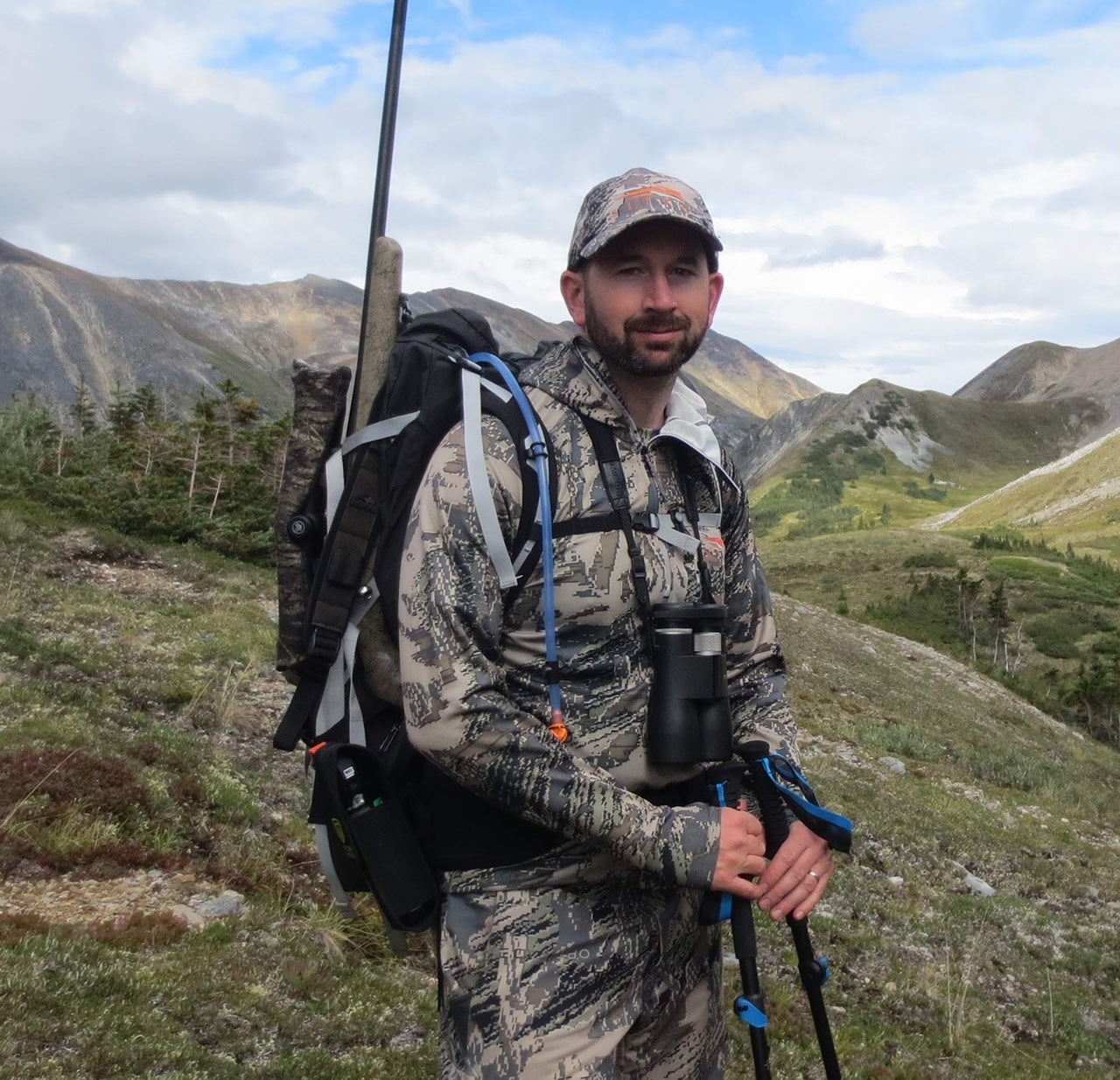
Rob Wilson
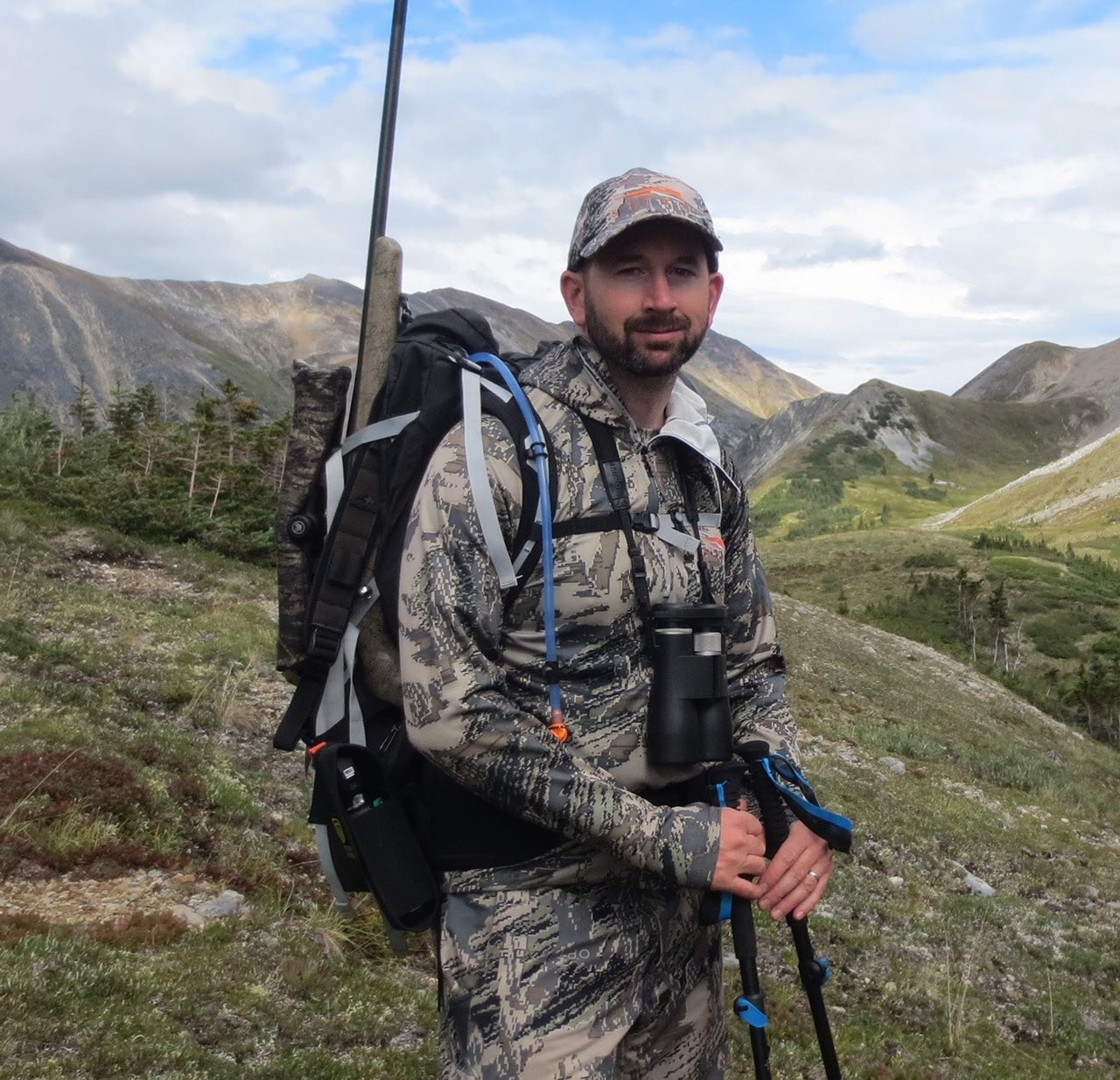
Rob Wilson
CFSC instructor, Park Ranger and Avid Hunter
"The first time I shot a deer, it was really interesting. I was elated and sad at the same time. It's not a pleasant thing to kill an animal. I enjoy being out of the wilderness, I enjoy being close to nature, and I enjoy bringing meat to my family, but that actual feeling of killing an animal is hard. It's a full gamut of emotions," he says. Nobody in Rob's immediate family hunted, so he was particularly proud to be able to provide wild game for their Acadian feasts, which traditionally always included a Hunter's Meat Pie. "It's got a biscuit crust with game meat inside and it's anything you could harvest as a hunter. So moose meat, rabbit, and whatever you could shoot basically, with a bunch of herbs and a thin gravy called "au jus" poured over it. It’s one way that I could provide for my family," says Rob.
Rob's ventures into the world of hunting started about nine years ago, when he first met the two German hunters who eventually took him under their wing. "I started following these two German hunters around and I followed them for an entire season before I even considered getting a hunting license," says Rob. "They brought their heritage to their hunt. They would do things a little differently. They even have a ceremony where they take the last meal that the animal was eating, and they dip a little bit of the branch in the blood; then put it in their hat and place another branch the mouth of the animal. A hunter coming back into camp with a branch in his hat indicates he has been successful." he says. "They treat the animal with a lot of respect. This includes taking really good care of the meat from the field to the plate. They butcher the meat themselves so every ounce is used and there’s no waste. It’s a neat way to take care of the animal."
Rob adopted his German hunter's ethical hunting philosophy, and he’s excited to have an opportunity to share it with a new generation of hunters as part of the EatWild team. "I think it's a really great opportunity to try to help new hunters to be more socially aware of the impacts of their practices. Everyone is going to have a different perception of what ethical hunting is, but for me, ethical hunting is to do things with as much respect for the animal as you can, from start to finish, and to treat the environment, and the people in the area, with as much reverence as you can as well." As a long time Park Ranger and 16 year Search and Rescue volunteer, Rob brings a diverse skill set to the EatWild team that he is eager to impart on others. Rob’s annual hunting adventures include solo backpack trips into remote Alpine terrain as well as numerous forays into the interior of BC with his German hunting partners.
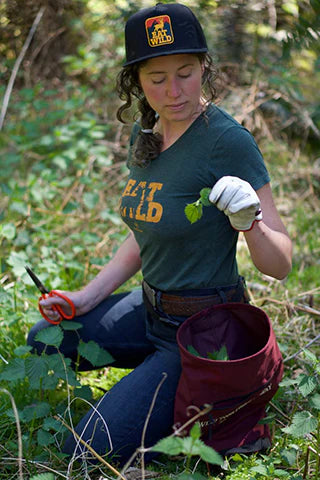
Jody Peck
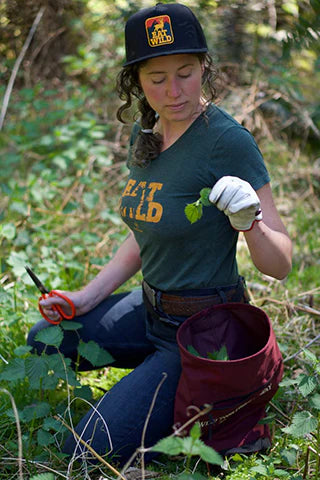
Jody Peck
Wild Harvest Chef and Mentor
Jody Peck grew up in the Peace River Valley in Northeastern BC and, from a young age, learned how to butcher and cook game meat as a bush cook (camp cook at exclusive hunting outfitters). Her passion lies in ethically harvesting, butchering, imagining and creating delicious meals that nourish. Cooking is Jody’s connection to the flavours of the land. She spends every fall in hunting outfits in Northern British Columbia, the Yukon and the Northwest Territories, creating wild food experiences for crews, workshops and backcountry events.
When at home in Vancouver, she cooks for film and TV, curates and hosts private wild food pop-up events, and works as a private chef. She loves the diversity of remote and city cooking, but regardless of where she finds herself, she always sources the best local and wild ingredients. Learn to cook the Wild Northern Way with Jody.

Jeremy Quan

Jeremy Quan
CORE instructor
Jeremy, raised in South Vancouver, discovered his love for hunting while chasing his first game animal, grouse, in Princeton. These days, he's out hunting small game, deer, bear, and waterfowl across Crown and private lands in Merritt, Osoyoos, Penticton, Okanagan Falls, Delta, Abbotsford, Langley, Loon Lake, Texada Island, Squamish, Harrison Lake, and North Vancouver Island.
When he's not in the woods, Jeremy works in community recreation planning. He enjoys baking sourdough bread, camping, drinking craft beer, cycling, softball, and Ultimate Frisbee.
Jeremy aims to foster an inclusive, safe, and accessible learning community. His goal is to make hunting enjoyable for everyone, removing barriers and opening doors to the wilderness and sustainable food sourcing.
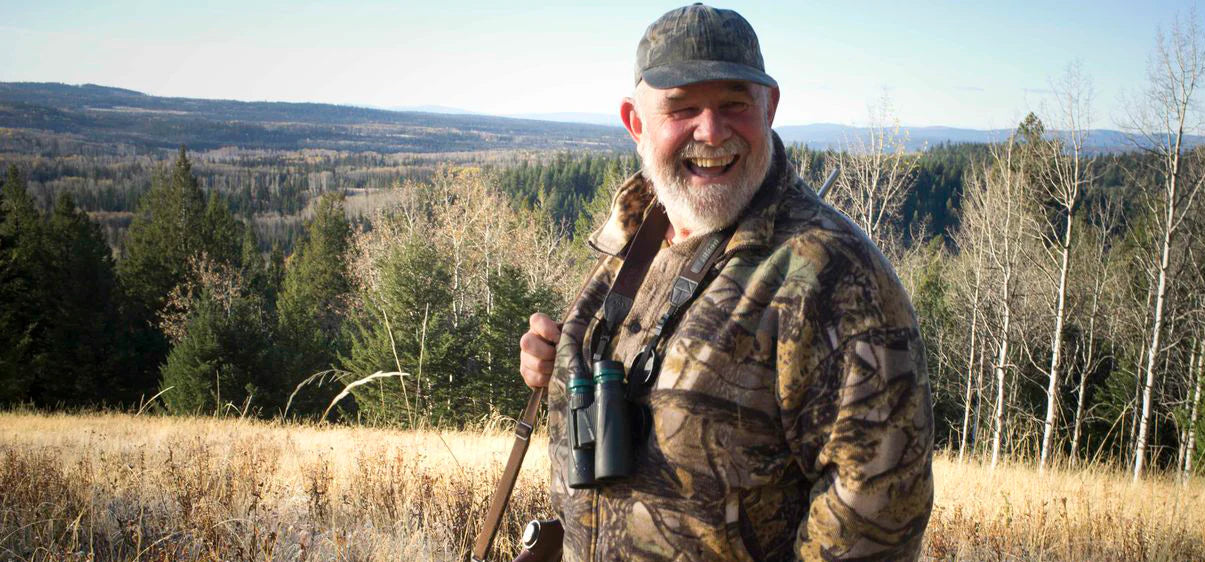
Geoff Horsfield
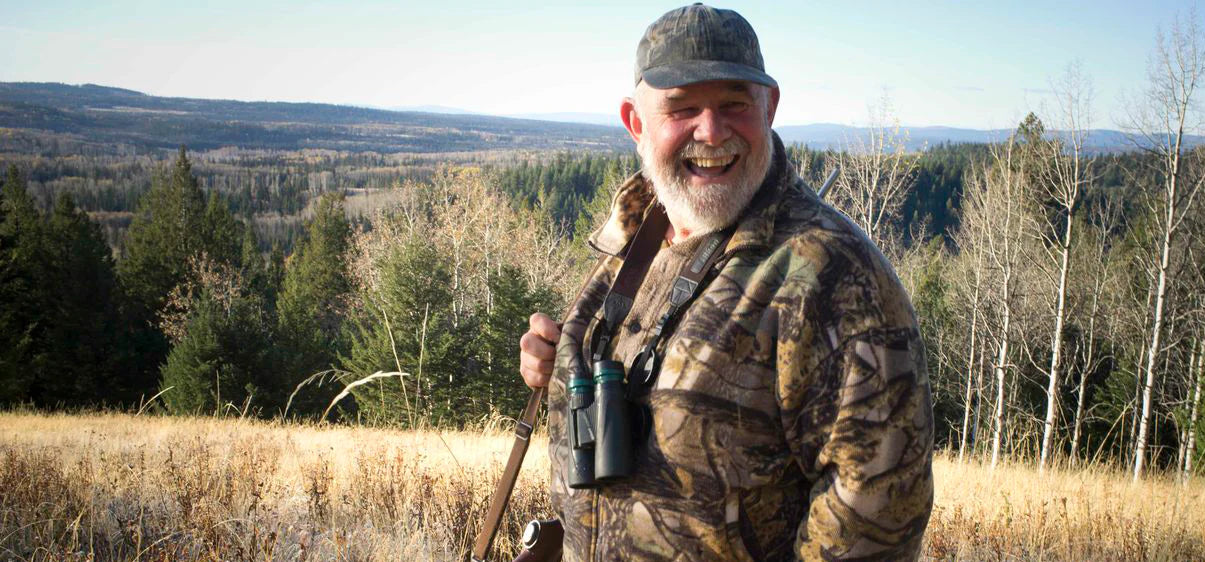
Geoff Horsfield
Hunter Field Shop Instructor, Hunting Mentor, Commercial Fisherman and Generally Interesting Guy
When Geoff started hunting in the mid 1960’s in a town called Errington, near Parksville, on Vancouver Island, 15-year-olds could pick up their hunting license at the corner store and zip off into the woods after school for a quick hunt on their bikes, you know, with a gun strapped around their shoulders. “Our plan was we would get our mothers if we ever got something,” he says. His father, a farmer, didn’t hunt, so he learned the craft from his friend’s dad. It took him a couple years before he shot his first Vancouver Island Spike, a nice buck, on top of a mountain. “I had to get it down all by myself. That turned out to be a lot more work than the first couple minutes of excitement,” he says. He got that buck down the mountain though, and it would become one of his many adventures in the wild. “Hunting for me became a lot more than the pursuit of food,” says Geoff. “It became the main focus of my recreational and cultural life. Most of the people I know, and the places I’ve gone, have been related to hunting. It’s been about more of a life-long adventure for me than a way to get something to eat. Part of the joy is just being outside and being off in the mountains and going up some river that nobody ever goes.”
Over the years, he’s also developed a special kind of bond with the fauna that he stalks out of the wild. “There’s some kind of a reverence that develops between yourself and the animals,” he says. If you ask Geoff for any hunting advice, he’ll probably give you two important tips: “First you’ve got to learn your basic woodcraft skills: being able to find yourself in and out of the bush without getting lost, and feeling pretty comfortable doing it,” he says. Then you just have to start exploring. He suggests you get yourself a copy of The BC Road & Recreational Atlas, and get going. “Ninety-five per cent of B.C. is Crown Land and even with your Honda Civic you can just drive out somewhere and just start hunting eh? Most people don’t know that. In my early years we would just drive all over BC and just explore all over the place,” says Geoff. “BC is a big place and if you want to be a hunter it’s probably the best place in the world that you can probably live. It’s got 16 or 15 big game animals that you could hunt. You could spend 6 months a year hunting, and if you throw in some duck and goose hunting, you could stretch it out even further,” says Geoff. When he’s not hunting with Dylan and his other hunting buddies, or mentoring new hunters through EatWild, Geoff can be found harvesting food with his wife from his farm in Errington, on Vancouver Island, where he grew up.
Hunting Advice from Geoff
"First you’ve got to learn your basic woodcraft skills: being able to find yourself in and out of the bush without getting lost, and feeling pretty comfortable doing it, then you just have to start exploring. He suggests you get yourself a copy of The BC Road & Recreational Atlas, and get going. Ninety-five per cent of B.C. is Crown Land and even with your Honda Civic you can just drive out somewhere and just start hunting eh? Most people don’t know that. In my early years we would just drive all over BC and just explore all over the place."
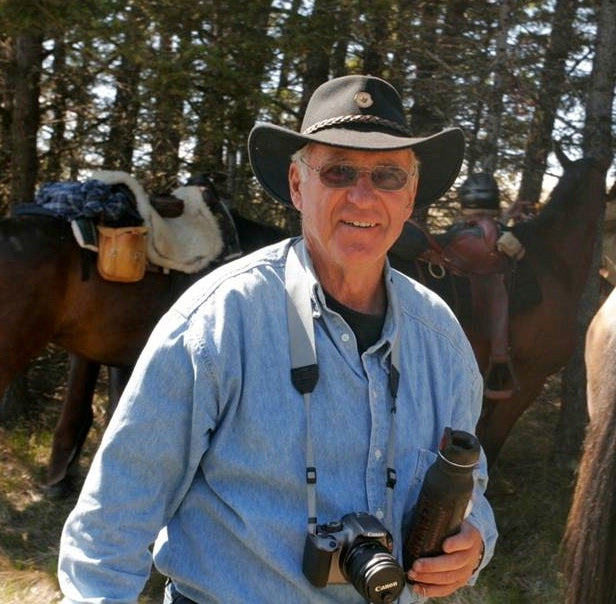
Larri Woodrow
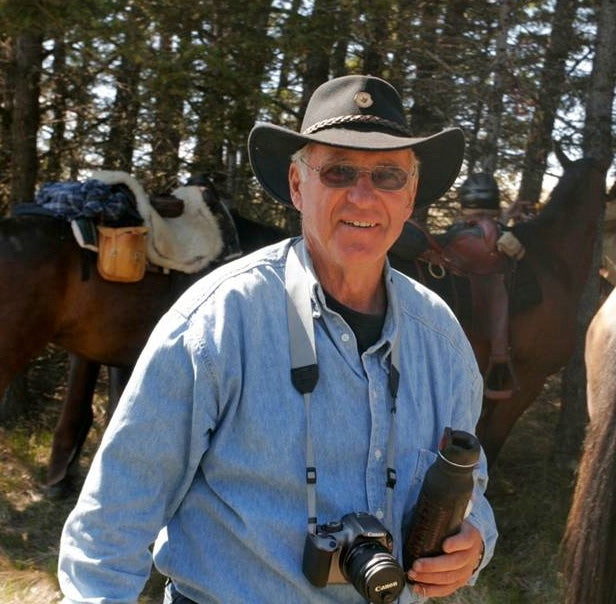
Larri Woodrow
Hunter Field Shop Instructor, Retired School Teacher, Conservation Activist and Adventurer
When he’s out in the bush, Larri Woodrow knows how to make himself scarce. Thanks to his unwavering mules, which he bred himself, Larri has ventured farther into BC’s backcountry than most people ever will. “The advantage of mules is that you can penetrate into the wilderness far deeper than any hikers are capable of doing. The only way people can get up to where I go up north is by floatplane. So I avoid the lakes and hunt from there,” says Larri, who is very likely to turn you into a devout mule hunter. “A mule can go into the mountains for the whole season and work every other day and come out stronger. If you do the same things with a horse, it will come out weaker. Besides, a mule is smarter than a horse.”
As the descendant of a long line of B.C. hunters—his grandfather was born in Comox in 1892—Larri has been hunting since he was 5 years old. He’s almost 85 years old today, and he’s not planning on stopping any time soon. “One of the reasons I’m still active is that I’m motivated to continue hunting and fishing and explore the outdoors instead of just sitting down and becoming a consumer,” he says. For Larri, hunting is about far more than having a great meal at the end of the day, it’s all about the adventure, and that’s something he looks forward to passing on to younger generations. “I’m just as comfortable way back three or four days into the wilderness as I am in a mall, and there aren’t many people who can say that. They’re afraid. Or if they’re on a park trail, they’re fine. Hunters don’t do that, we get off the trail as quick as we can, although some hunters still have the fear and it holds them back.”
“For those who manage to conquer their reservations about these things a whole new world opens up. As that world opens up, so does your confidence level. It gives a person a different perspective; the meat on the plate that’s fine but it’s all the other rewards that are far better. That’s why we want to help Dylan at EatWild, it’s because we want to get more and more people introduced into our wilderness areas.” Larri still remembers stories his grandfather told him of hunting on Vancouver Island in 1910 and 1915, and as a conservation activist, he’s hell-bent on ensuring that his grandkids live to enjoy the outdoors the same way he has throughout his life. “I’m working to save what we have here because what we have is pretty much unique in the world, these huge tracks of Crown Land where anybody can walk. One of the biggest issues to me is to maintain that access: access to rivers, lakes and mountains. In Europe to go hunting you have to get the landowners permission. Here you don’t have to ask anyone permission. You take Dylan’s course, you get your permits and off you go.” “It’s these things that we enjoy that we must guard and protect. It’s the access. It’s a lifestyle that we take for granted. It’s putting my boat in the water and going fishing. Dylan and I and a whole group of us are going to Bamfield and catch our fish and salmon and halibut, for the year. Will my grandkids be able to keep doing that? Not at this rate of decline. We’ve got to learn to live more sustainably.”